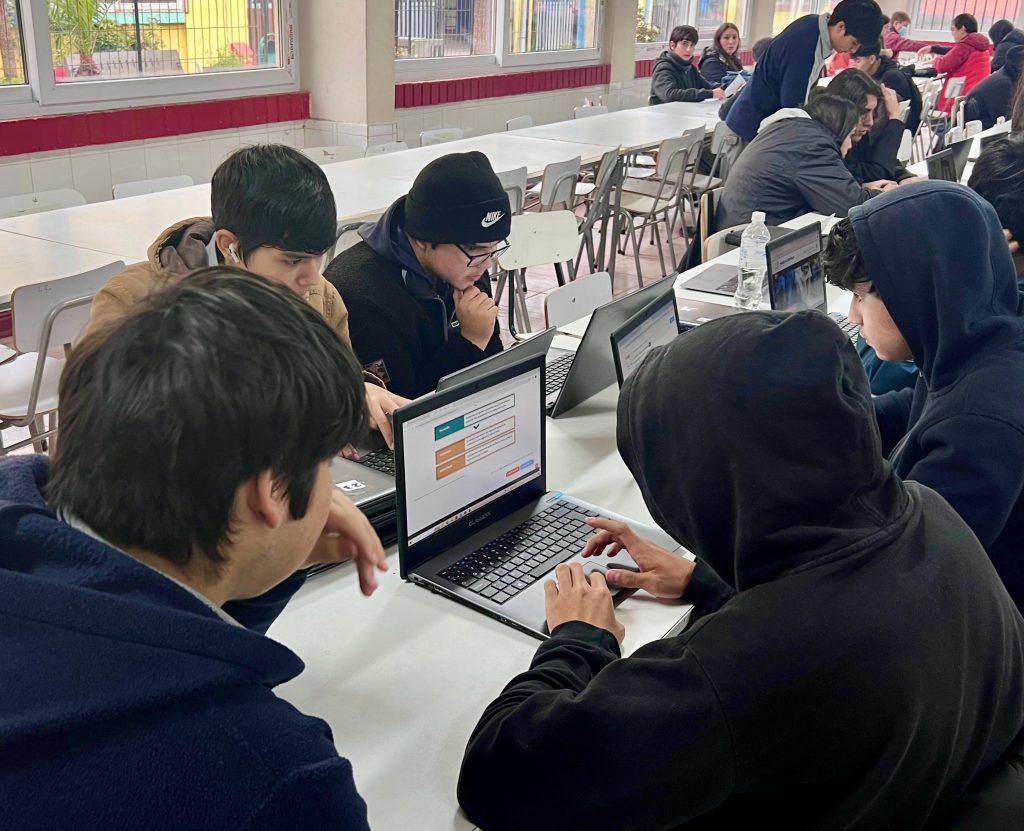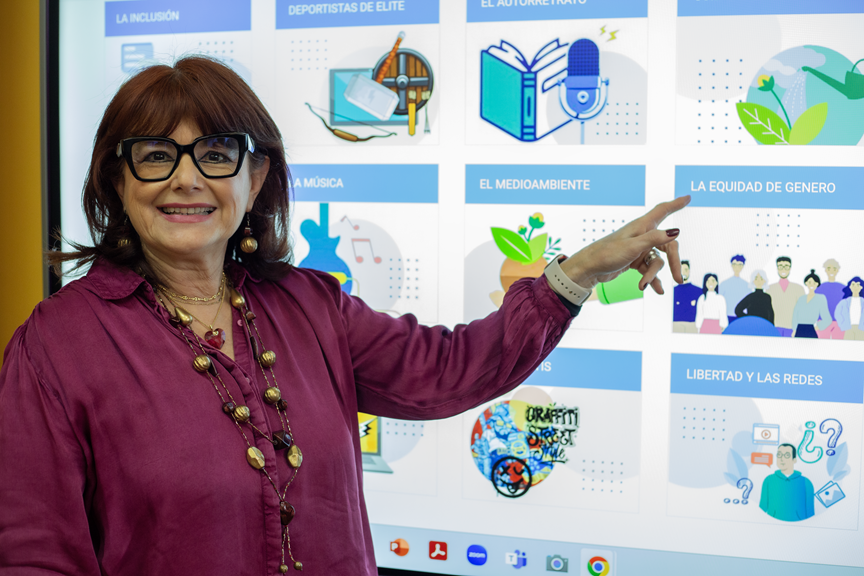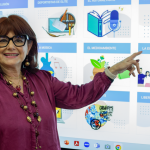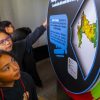The results of the research groups led by Dr. Anita Ferreira Cabrera are based on more than 25 years of applied research in linguistics.
By: Iván Tobar Bocaz, Journalist – Research and Development Vice-Rectorate ivtobar@udec.cl | Images: OTL UdeC and Anita Ferreira
Within the framework of her research group, Spanish Acquisition and Teaching as a Mother Tongue (L1), Second Language (L2), and Foreign Language (FL) (ADELE), Anita Ferreira, Ph.D., a professor from the Spanish Department, has managed to combine her interests in applied linguistics and artificial intelligence (AI). With a Ph.D. in Computer Science in Artificial Intelligence from the University of Edinburgh and a Ph.D. in Linguistics from the Pontifical Catholic University of Valparaíso, she has an extensive track record of scientific productivity and advanced human capital training, the most recent result of which is the platform “Mejora tu escritura (Improve Your Writing).”
The platform uses AI to identify the textual, grammatical, and spelling consistency errors that are most repeated in writing, and perform metalinguistic corrective feedback that adapts to different types of errors.
ANID’s Fondef IT line funded this initiative, and it has already been successfully tested with high school students from four schools in the region and their respective teachers.
Tune in to the new challenges
“This has been a development that has been evolving little by little given the new scenarios that we have had to explore to improve language learning and teaching,” explains Dr. Ferreira.
“From traditional technology, ICALL (intelligent computer-assisted language learning) has been evolving in an area that is language teaching with technology, an area within applied linguistics that has seen an enormous boom due to advances in artificial intelligence,” she mentioned.
The researcher points to the need for adaptation, given that technology imposes new work scenarios. In her opinion, the educational field “has been slow to accept these challenges.” Therefore, traditional teaching methods in the classroom do not have the expected effects, partly because students are digital natives.
“Technology applications cannot be outside the classroom. What we need to improve is how and when to use them, for what content and in which educational contexts, to teach our students to use them to learn.”
The professor emphasizes the need to reflect as a society on these problems “and make decisions that also consider the practices, sense of identity and worldview of our students,” she emphasizes.

Strategic allies
The use of AI in these challenges is also fundamental for Dr. Ferreira. As part of Fondecyt projects, she has developed an intelligent tutor, ELE-TUTORA (Intelligent Tutorial System for Foreign Language), to support teaching Spanish as a foreign language using natural language generation and recognition techniques.
“Having tools like this can produce exciting changes at an educational level, but for that, we must have a work methodology that helps us understand, first of all, how these new technologies work and what kind of interactions and knowledge are being produced, for example, through generative artificial intelligence.” In this scenario, the Chilean educational system, says the specialist, is a strategic partner, to “reach young people and improve their writing, linguistic and communicative skills, to prepare them better to face academic and professional contexts,” explains Dr. Ferreira.
Editorial production
From the point of view of scientific productivity, Dr. Ferreira will soon add to her list of articles, chapters, and books with ‘Español para Fines Específicos / The Routledge Handbook of Spanish for Specific Purposes’ of the Routledge publishing house, where she has collaborated as an editor with two other renowned linguists: Barbara A. Lafford (Arizona State University, United States) and Elisabet Arnó Macià (Universitat Politècnica de Catalunya, Spain).
“It is a manual with 30 chapters dedicated to Spanish for specific purposes in different professions, in a wide range of areas such as science and technology, health, the legal field, the military field, business, tourism, and the agricultural industry.”
Spanish for Specific Purposes (EFE) requires integrating varied historical and academic perspectives, gender analysis, discourse, and others. With this manual, Dr. Ferreira comments: “There has been a lot of research on our language. We started in 2019 working with a team of researchers from different universities worldwide, including the United States, Europe, and Latin America, and soon, in February 2025, it will see the light of day.”
Last modified: 3 de septiembre de 2025






